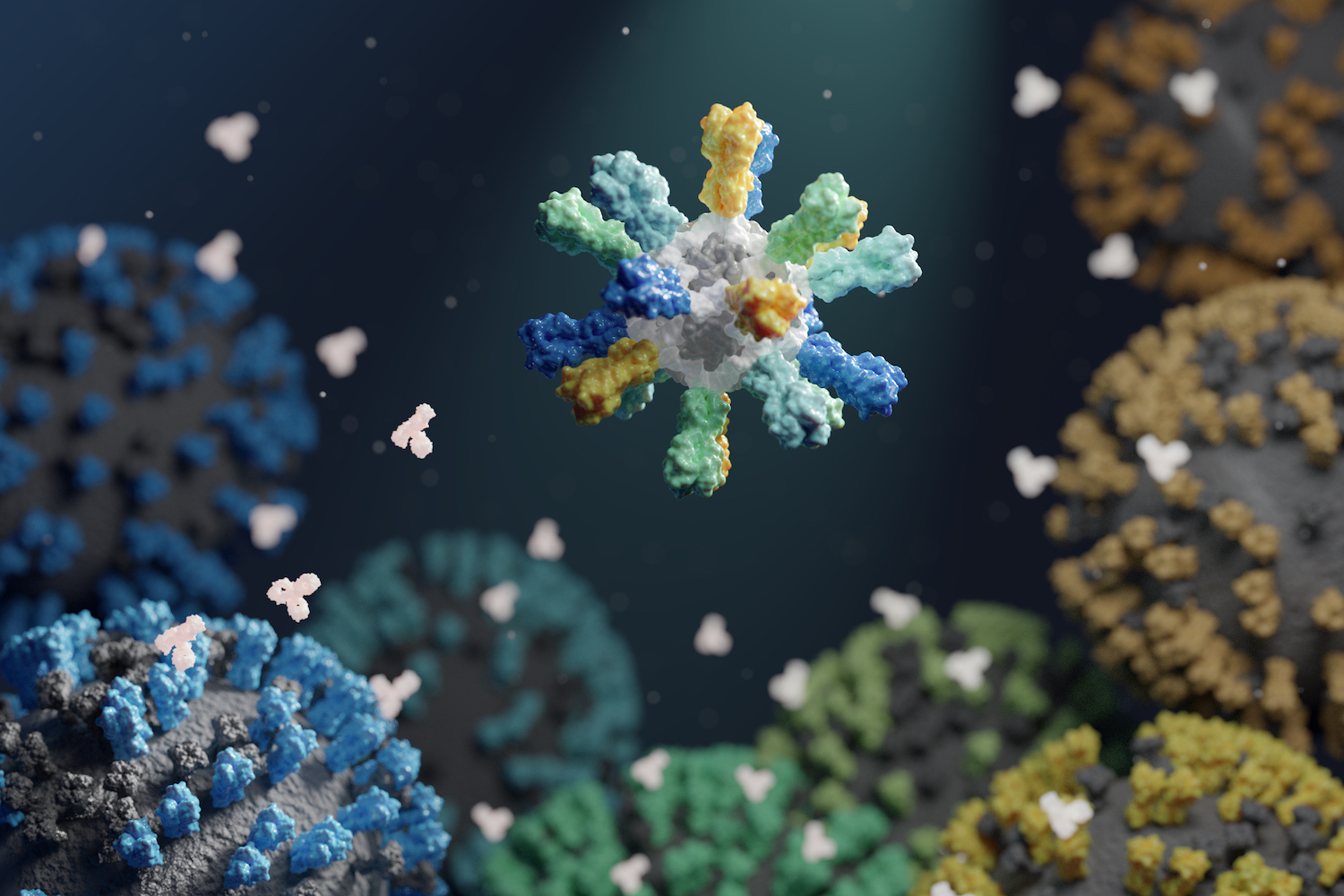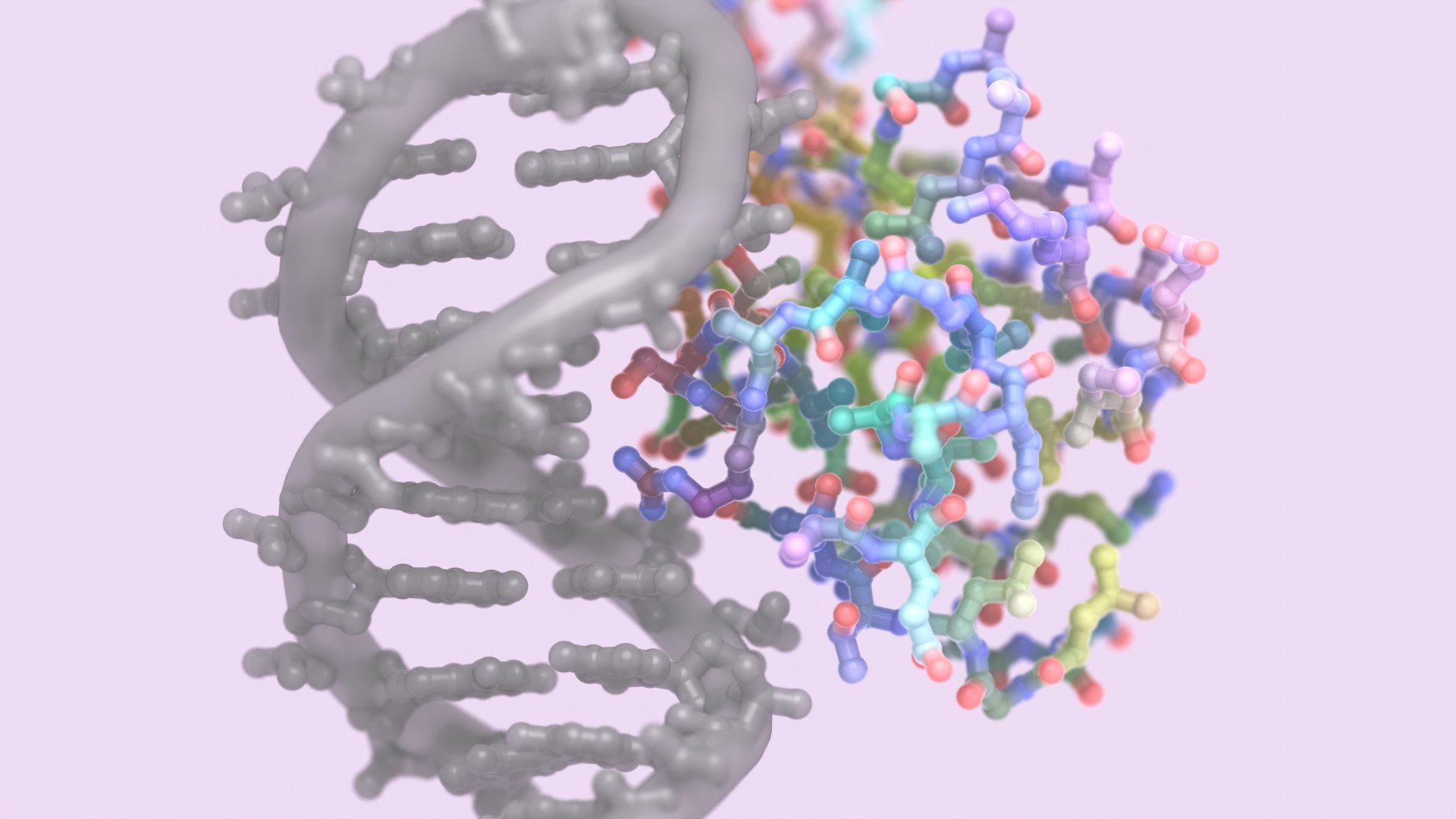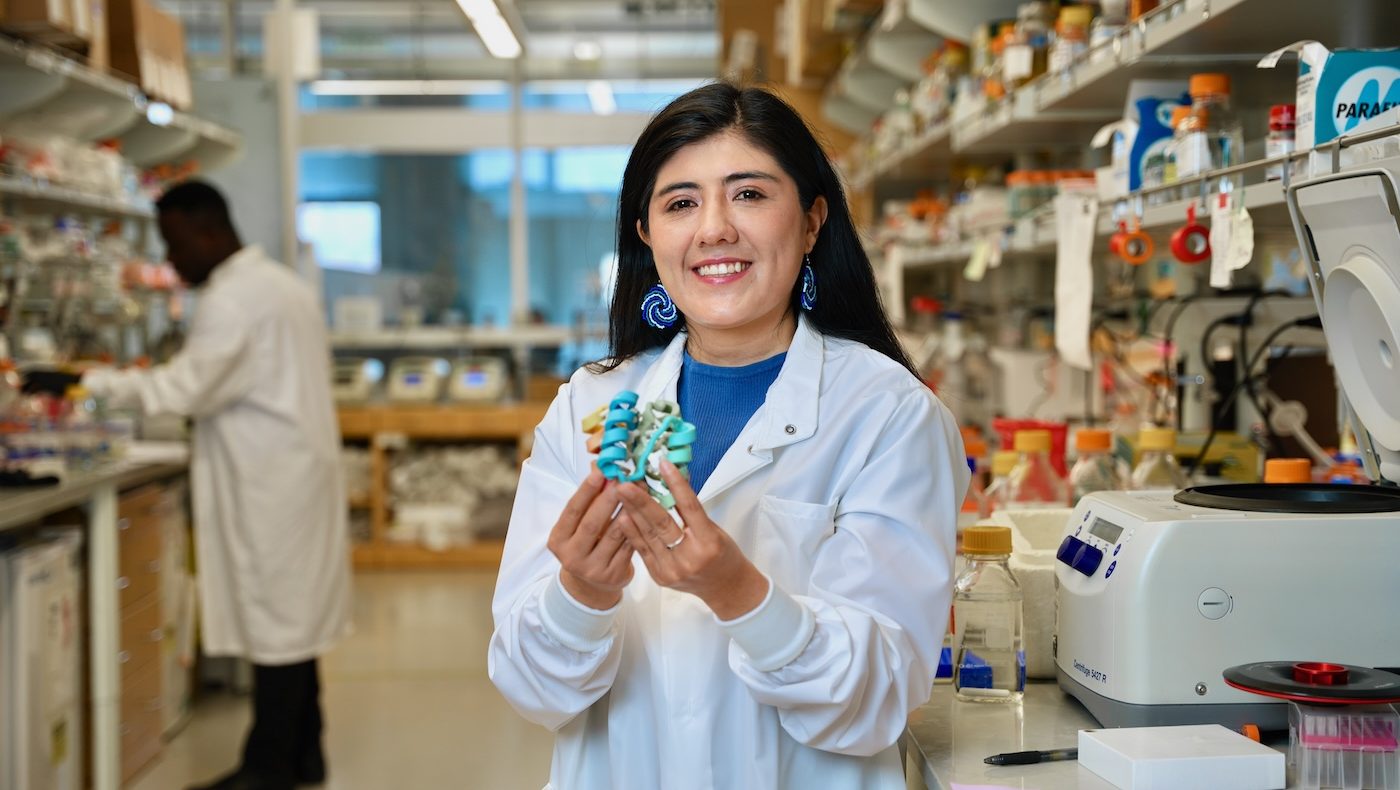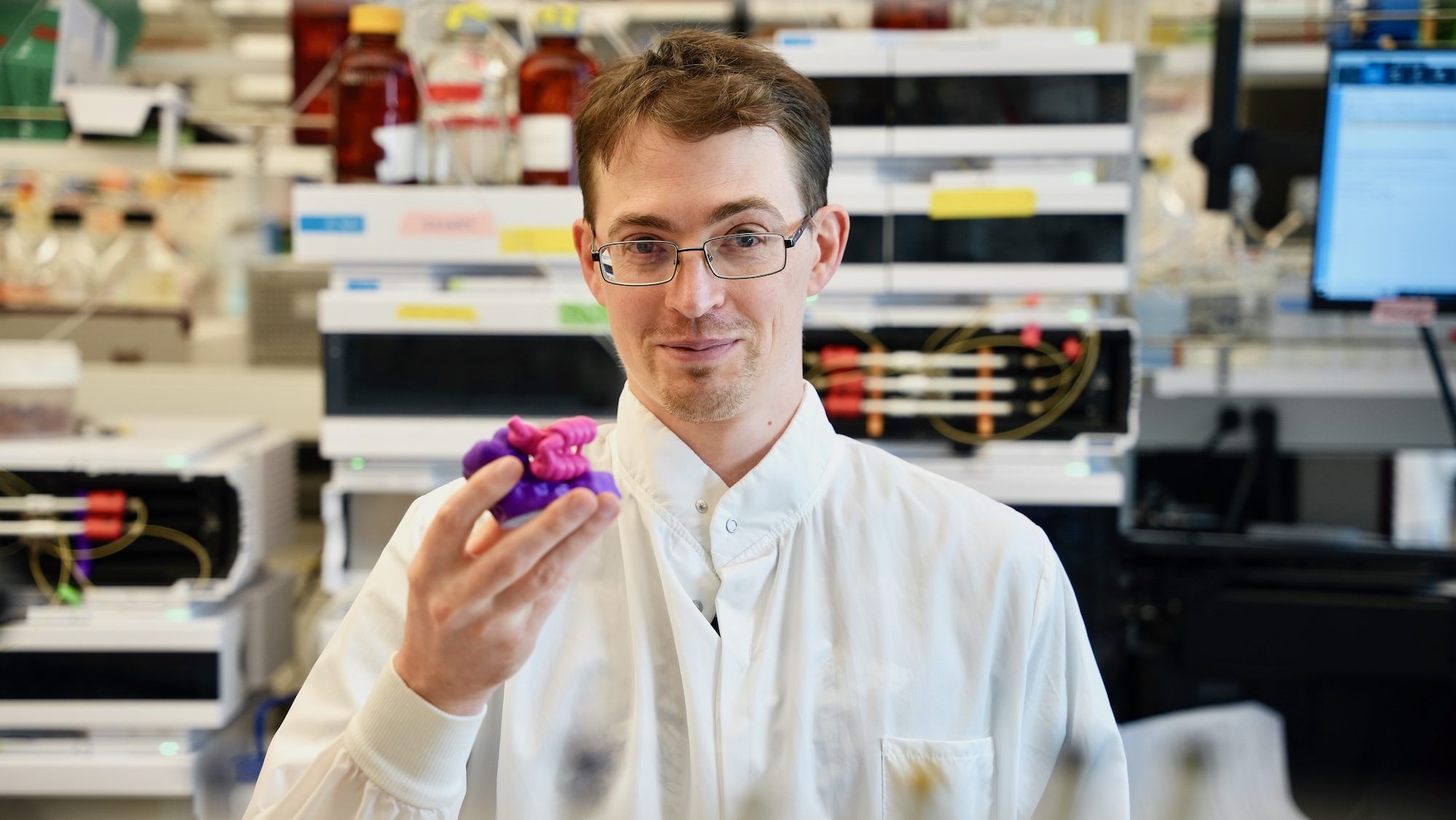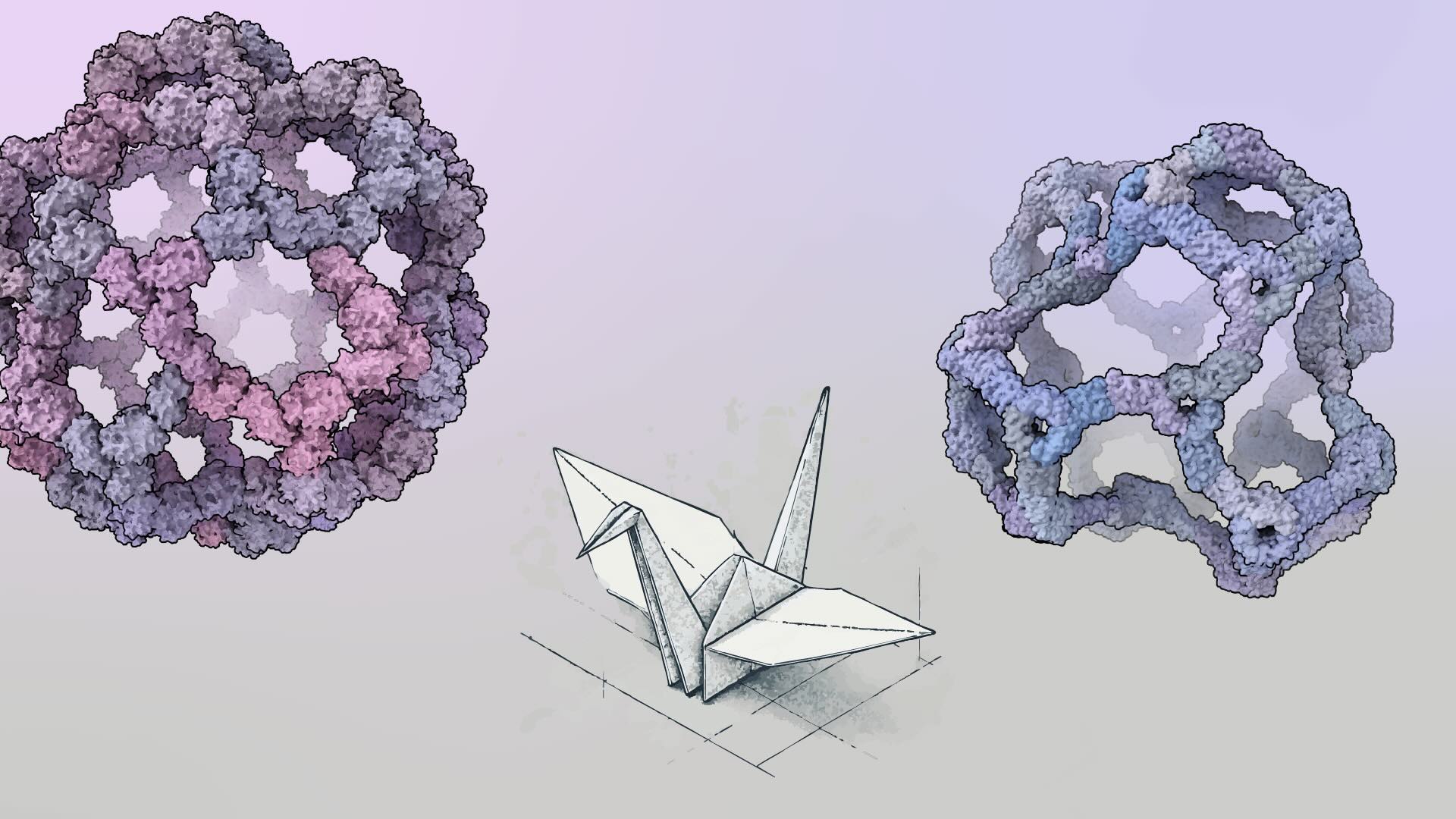In a quest to thwart future pandemics, the King Lab has made significant strides toward the development of universal vaccines, as recently noted by the National Institutes of Health.
Traditional vaccines—while crucial—only target certain strains of a given disease. Universal vaccines, on the other hand, are meant to train the immune system to combat all versions of a pathogen, including strains yet to evolve.
To bring universal protection closer to reality, the King Lab at the Institute for Protein Design is using protein design to create custom protein nanoparticles that can be decorated with different viral proteins. These vaccines allow the immune system to see up to 60 different strains of a pathogen at once, which may lead to better protection.
A promising development is FluMos-v1, an experimental nanoparticle vaccine for the flu that we developed in partnership with the NIH Vaccine Research. This vaccine is designed to provide broad protection against different influenza viruses and is now in Phase 1 clinical trials.
This research is bolstered by a parallel development: a vaccine that can provoke an even broader immune response, focusing on the conserved stem region of hemagglutinin, a protein found on the surface of the influenza virus.
By fostering pandemic preparedness, the King Lab’s focus on innovative vaccine design moves us a step closer to the reality of universal vaccines—and a future where pandemics can be stopped before they ever happen.
Read the full story by Sharon Reynolds at the NIH.

